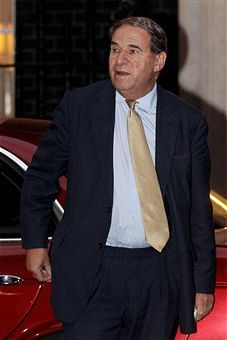 For a long time, the terms of Britain’s Europe debate has been about the merits – or
otherwise – of membership. This has occluded discussion about the need to promote a deregulated and economically liberal single market, for which the Conservatives have fought so successfully since
Britain joined the then EEC in 1973.
For a long time, the terms of Britain’s Europe debate has been about the merits – or
otherwise – of membership. This has occluded discussion about the need to promote a deregulated and economically liberal single market, for which the Conservatives have fought so successfully since
Britain joined the then EEC in 1973.
Now Lord Brittan has shown the way. In a speech to Business for New Europe, he takes aim at the many illiberal practices that hamper economic development across Europe and hurt British business:
“Portugal still has rules governing the minimum distance requirements between driving schools; and in Greece, directors of dancing schools need to live within a set distance of the school! Europe adopted a directive to enable the mutual recognition of professional qualifications in 2005 but many other entry barriers remain, such as fixed tariffs, complex shareholding requirements, onerous capital requirements, and restrictions on the legal form a company should take. To give a couple of examples, Malta, Germany, Greece and Bulgaria still impose fixed tariffs on architects. To offer recruitment services in Italy, an employment agency must have four branches and hold min. capital of 600,000 euros, which serves as a barrier to entry for other service providers with different business models.”
For the Tory peer, it is axiomatic to remove barriers to the cross-border provision of professional and business services and to create an even more integrated single market. The former EU commissioner also wants Britain to focus on need for the single market framework to keep up with developments in the digital and low-carbon economies and help SMEs; promote rules that support ecommerce and new cross-border copyright frameworks for online material; and a patent system and standardisation framework that can support emerging technologies.
While Europe is currently worried about monetary policy and fiscal stabilisation, it must not forget what was once called the Lisbon Agenda: to improve the market. Britain, being the region’s liberal champion par excellence, must lead the likes of Denmark, the Netherlands, Finland and Sweden against the corporatism of many other EU governments. And the government should proclaim how it intends to proceed. Lord Brittan has taken the initial steps; Foreign Secretary William Hague should now make the agenda his own.






Comments